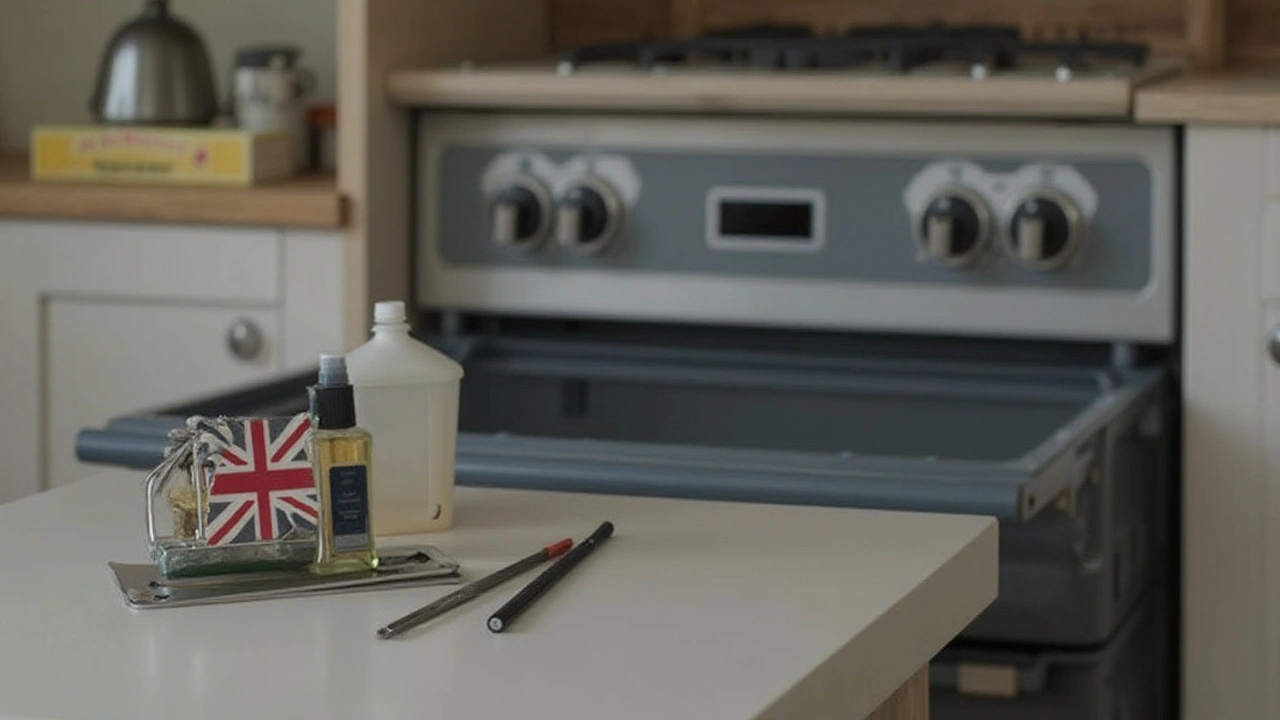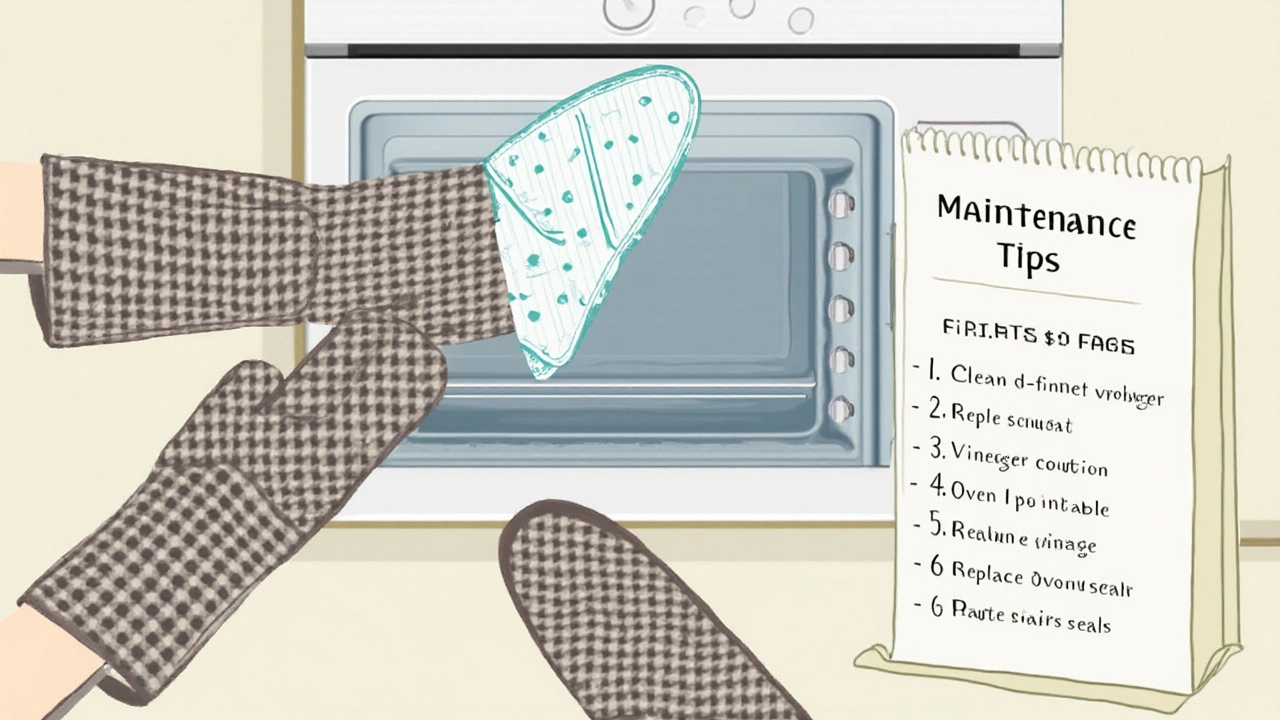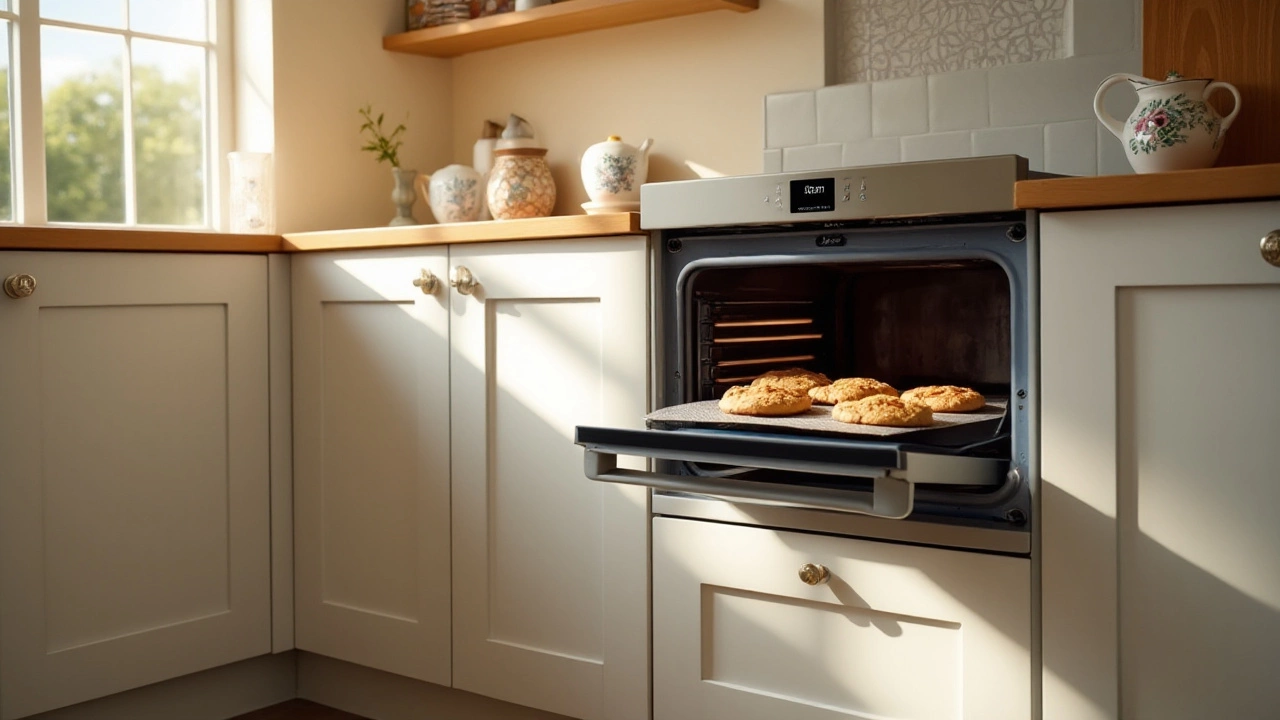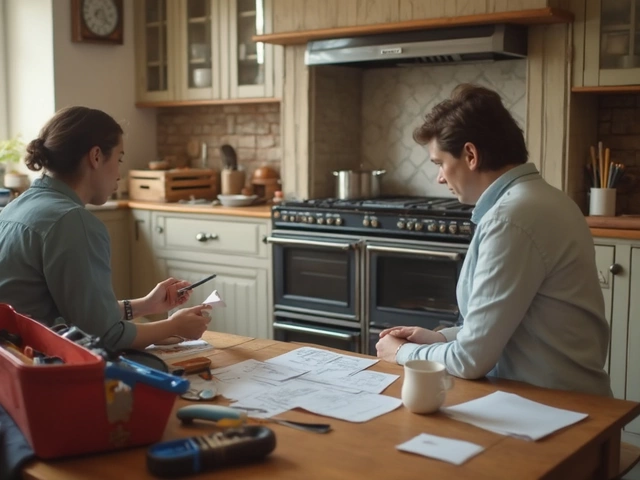Electric ovens are central to modern-day kitchens, offering a versatile means to prepare meals that bring families together around the table. But just like most appliances, they are not immune to wear and tear. For those investing in a new oven or evaluating their current one, it’s useful to know how long these appliances typically last.
Several factors come into play when determining the lifespan of an electric oven. From the brand and model to the frequency of use and adherence to maintenance tips, these aspects collectively influence durability. Let us delve into these elements and uncover how you can extend the life of your electric oven, maximizing your investment and maintaining efficiency in your cooking domain.
- Understanding Electric Ovens
- Average Lifespan and Key Factors
- Common Issues and Repairs
- Maintenance Tips for Longevity
Understanding Electric Ovens
Electric ovens have become an indispensable part of daily life for many. They range in features and designs, catering to a variety of culinary needs. At their core, these appliances convert electrical energy into heat to cook food, which is done through elements that heat up when electricity passes through them. These elements are often found on top, at the bottom, or both, depending on whether the oven is conventional or has convection functionality too. The beauty of the electric oven lies in its consistency and control over the cooking temperature, allowing for precise baking and roasting.
The inner workings of electric ovens have evolved over the decades with advancements in technology. Most modern ovens come with digital controls, timers, and even smart technology that allows users to operate them remotely via smartphone apps. Whether you are simmering a delicate custard or charring a pizza crust, it is crucial to know the capabilities of your particular oven. Cleaning modes, energy consumption, and safety features also vary across models, influencing the user experience significantly. A fascinating aspect of such ovens is the option for self-cleaning cycles, employing high temperatures to burn off residues, making maintenance somewhat more straightforward.
When exploring the brand and model that suits your needs, many experts emphasize paying attention to the oven's energy efficiency rating. Not only can this affect your electricity bill, but it also correlates with how well heat is retained inside the unit, impacting cooking times and results. A noteworthy tip from the Association of Home Appliance Manufacturers suggests looking for appliances with an Energy Star rating for optimal efficiency and performance. These details, often overlooked, play a pivotal role in the day-to-day functionality and long-term durability of your oven.
"Choosing the right electric oven is akin to selecting a trusted partner in your kitchen adventures," says renowned chef and culinary educator, Jacqueline Stewart. "An appliance that complements your cooking style and needs can profoundly enhance your culinary experiences."
Let's delve into consumer preferences—there's a notable shift towards multi-functional ovens. They accommodate busy lifestyles by combining multiple cooking methods like steaming, grilling, and even air frying, expanding the range of dishes one can prepare at home. However, with this versatility comes a slightly steeper learning curve. It's advisable to thoroughly read the instruction manuals and experiment with trial recipes to acquaint oneself with these multifaceted features.
While electric ovens might seem simple due to their user-friendly nature, understanding their inner mechanics and external benefits can significantly enhance how they are utilized. This not only includes knowing how they work but also being aware of specific settings that can best bring out the flavors in your dishes. The gratitude for temperatures that are usually spot-on versus the variations in gas ovens cannot be emphasized enough by devoted home chefs and amateur bakers alike, making electric ovens a mainstay in contemporary kitchens. An in-depth comprehension of these capabilities can vastly inform how you make the best use of this kitchen cornerstone.

Average Lifespan and Key Factors
The typical lifespan of an electric oven hovers around 13 to 15 years, as noted by most manufacturers and consumer reports. That being said, how an oven fares over the years depends heavily on various factors that affect its durability and performance. One primary aspect to consider is the brand and model itself, with some brands consistently receiving higher ratings for longevity due to superior materials and craftsmanship.
Another significant variable in the lifespan equation is usage. Frequent cooking, as might be the case in a bustling household or for those who love hosting dinners, can lead to faster wear. A well-maintained oven used daily might still last ten years or more, while one that's rarely used but poorly maintained could face malfunctions sooner. This brings us to the importance of regular cleaning and maintenance, which can't be overstated. Service experts often stress that neglecting routine maintenance can accelerate the wear and tear process.
Interestingly, a study by the Association of Home Appliance Manufacturers reports that despite technological advancements, the basic durability of appliances like ovens hasn't significantly increased over the decades. An electric oven's lifespan is greatly enhanced by timely servicing, including checking the oven's heating elements and seals. These components can degrade due to constant exposure to high heat, making periodic inspections crucial.
"Proper maintenance is the key to prolonging the lifespan of appliances," says Anne Pringle, a home appliance expert, "Users need to follow the manufacturer's care instructions to get the most out of their oven."
If you're invested in the longevity of your kitchen appliances, it's worthy to note that investing initially in a high-quality oven can often save costs in the long run. High upfront costs could translate into fewer repairs and extended usage. Additionally, following simple tips like not slamming the door, avoiding spills, and using the correct dishware can preserve the appliance's integrity over time. Ultimately, how long your oven lasts hinges on these critical factors, entwined with the habits and care practices of the user.

Common Issues and Repairs
Electric ovens, while robust, encounter their fair share of issues over time. Knowing the common problems can prepare you for potential repairs, ensuring your electric oven remains operational and safe. One prevalent issue is the uneven temperature distribution, a vexing problem for users who expect consistent cooking results. This can be caused by a faulty thermostat or a defective temperature sensor, both of which require careful attention. Repairing these components is typically straightforward but best left to a professional unless you're well-versed in appliance repairs. Regular testing with an oven thermometer can help catch such inconsistencies before they sabotage your culinary endeavors. Many users also report the oven not heating up effectively, which often points to a malfunctioning heating element. This is crucial as a failing element might cause the appliance to draw excess electricity, leading to increased energy bills. Replacing a heating element is usually a manageable task, albeit one that requires some dismantling. It's essential to disconnect the oven from the power to prevent any electrical hazards.
Another troublesome concern is when the oven door refuses to shut properly. This not only affects cooking efficiency but can also be a safety hazard, resulting in unexpected burns or energy loss. The issue could stem from worn-out door hinges or a damaged gasket. Hinges can be replaced with a bit of elbow grease, while the gasket's replacement hinges on the capability of sourcing the right part from the manufacturer. Occasional cleaning of these components can prevent them from wearing out prematurely, as grime and food residue tend to accelerate the deterioration. Moreover, harsh detergents can cause rubber gaskets to degrade, so gentle cleaning solutions are recommended. A recurrent issue is the oven’s display not functioning correctly, which can be quite baffling given the digital dependency of modern appliances. Often, this is attributed to circuit board glitches or a blown fuse. A power reset is sometimes enough to solve the problem, but if it persists, expert intervention is necessary to assess the circuit board's integrity.
According to the U.S. Department of Energy, appliances account for about 13% of residential energy use, with cooking appliances being a significant component.
Proper maintenance and timely repairs can help minimize energy waste and extend the life of your appliance.
For those handy with tools, minor issues can be tackled with resourceful DIY efforts. Replacing light bulbs that illuminate the oven is a common do-it-yourself project, provided you follow safety precautions. When embarking on any repair, having a comprehensive user manual on hand can be invaluable. Manuals provide not just guidance but also hints at less visible causes of the problem. It's vital, though, to recognize when a situation calls for professional service. Timely calling a qualified technician can prevent a small problem from escalating into a costly repair. And while working on quality repairs, ensure you use original parts, avoiding generic substitutes that might not last long or void your warranty. Investing in the care of your electric oven ensures not only a longer lifespan but that it performs to its full potential, making every meal cooked with it a success.

Maintenance Tips for Longevity
Preserving the lifespan of an electric oven involves not just the occasional cleaning but a commitment to routine maintenance. For anyone who values their kitchen equipment, taking care of your oven can indeed seem like a daunting endeavor. However, a little effort regularly will go a long way in ensuring that your appliance continues to function efficiently. Regular upkeep not only safeguards the unit's functionality but also can save you money on potential repairs or an untimely replacement. Just like any other domestic appliance, the performance and durability of electric ovens are significantly influenced by how well they are maintained over the years.
One of the first aspects to consider is cleaning. It's arguably the most straightforward yet often overlooked practice. A spic and span oven not only cooks food better but also contributes to its longevity. The accumulation of grime and leftovers can affect the appliance’s efficiency. Begin by scheduling regular clean-up sessions to remove any residue inside the oven after usage. Opt for natural cleaners like baking soda mixed with water to avoid damaging the interior surfaces. This simple step can help prevent considerable issues that degrade performance. Moreover, modern ovens often come with self-cleaning features, so utilize them wisely.
Keeping an eye on the condition of the heating elements is another vital part of extending an oven's life. These components are the core of your appliance's operation. If your oven takes longer than usual to cook or heats unevenly, it could indicate a problem. Regular inspection and testing can catch minor issues before they morph into bigger problems. Tighten loose fittings, examine the elements visually for uneven burning, and replace them if necessary. Additionally, most hardware stores offer replacement parts, and following a few simple instructions can often make this a feasible task for the handy homeowner.
Another crucial tip is to use the oven as intended and avoid overloading. Electric ovens are built to withstand specific loads, and constantly pushing these limits can lead to premature wear and tear. Abide by the manufacturer's guidelines regarding capacity limits and avoid slamming the door, as this might compromise the seal integrity. An inadequately sealed oven door can lead to heat loss, rendering the appliance inefficient. Returning to the habit of peeking into the oven through the glass instead of frequently opening the door can also mitigate this issue.
Finally, consider the electrical connections. Loose wiring or frayed cords pose a safety risk and reduce efficiency. Regularly examining and securing the plug connections can avert potential hazards. Given the complexity of electric oven connections, enlisting a professional's expertise for inspecting the electrical systems once a year is commendable. They are equipped to foresee any electrical issues before they become serious concerns.
"An ounce of prevention is worth a pound of cure," advised Benjamin Franklin. This mantra holds particularly true when it comes to appliance maintenance.
To sum up, integrating these practical maintenance tips into your routine can greatly extend the life of your electric oven. Not only does this preserve the functionality of your kitchen centerpiece, but it also ensures safety, efficiency, and the joy of cooking without interruptions. Being proactive with these simple actions helps provide peace of mind, knowing you have a reliable appliance ready to support your culinary endeavors, year after year.




